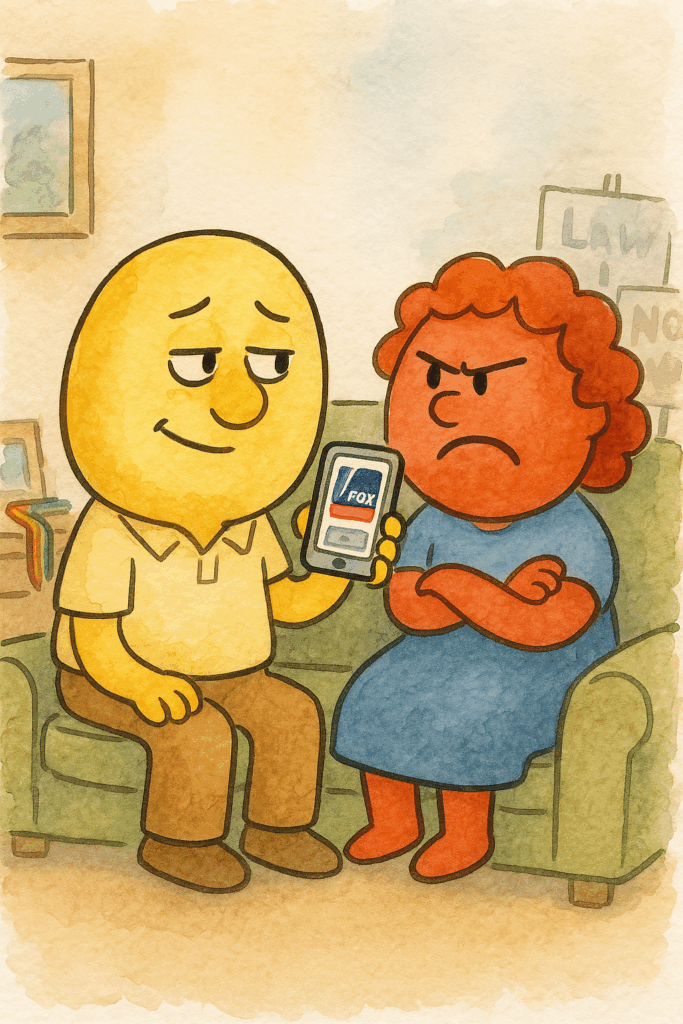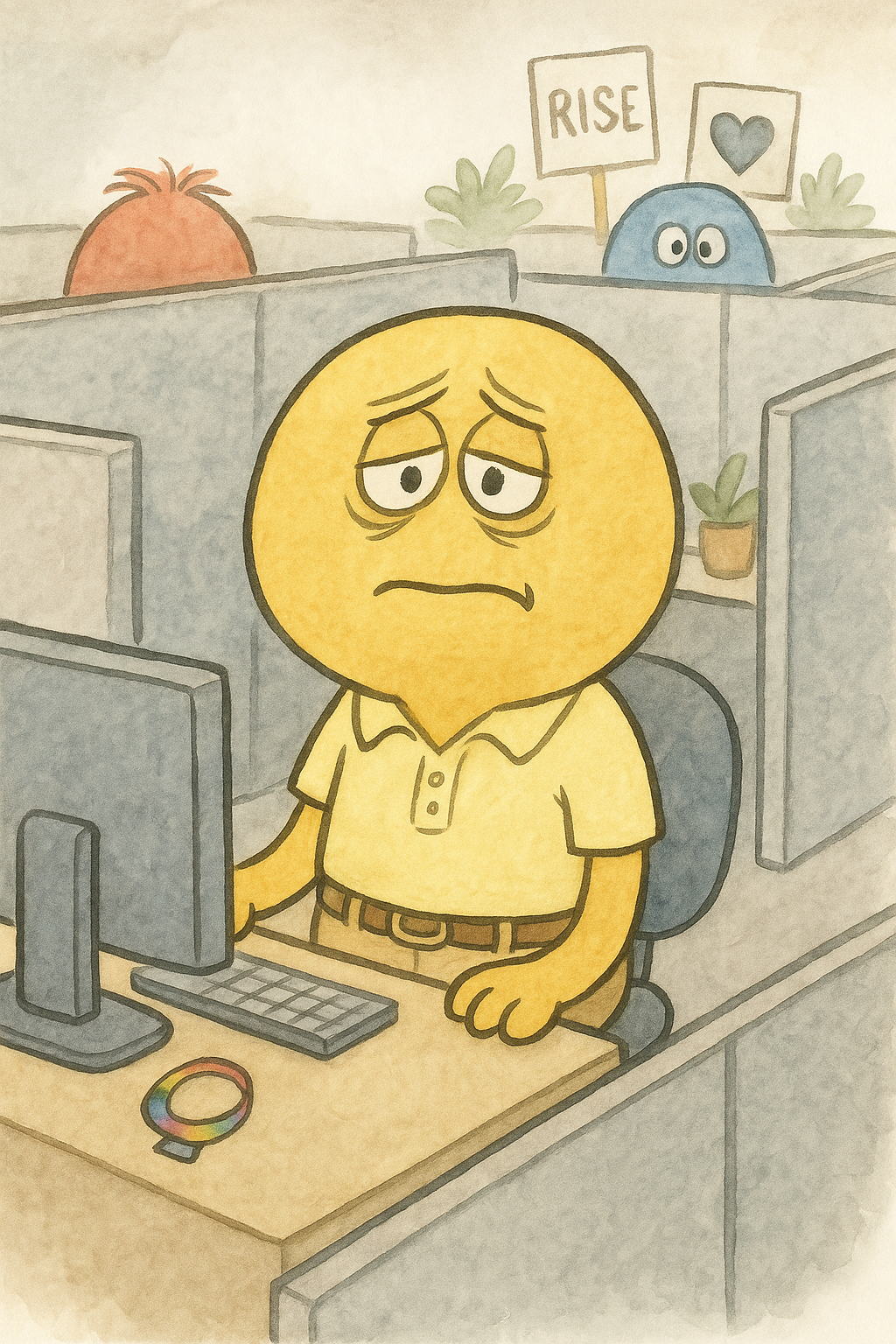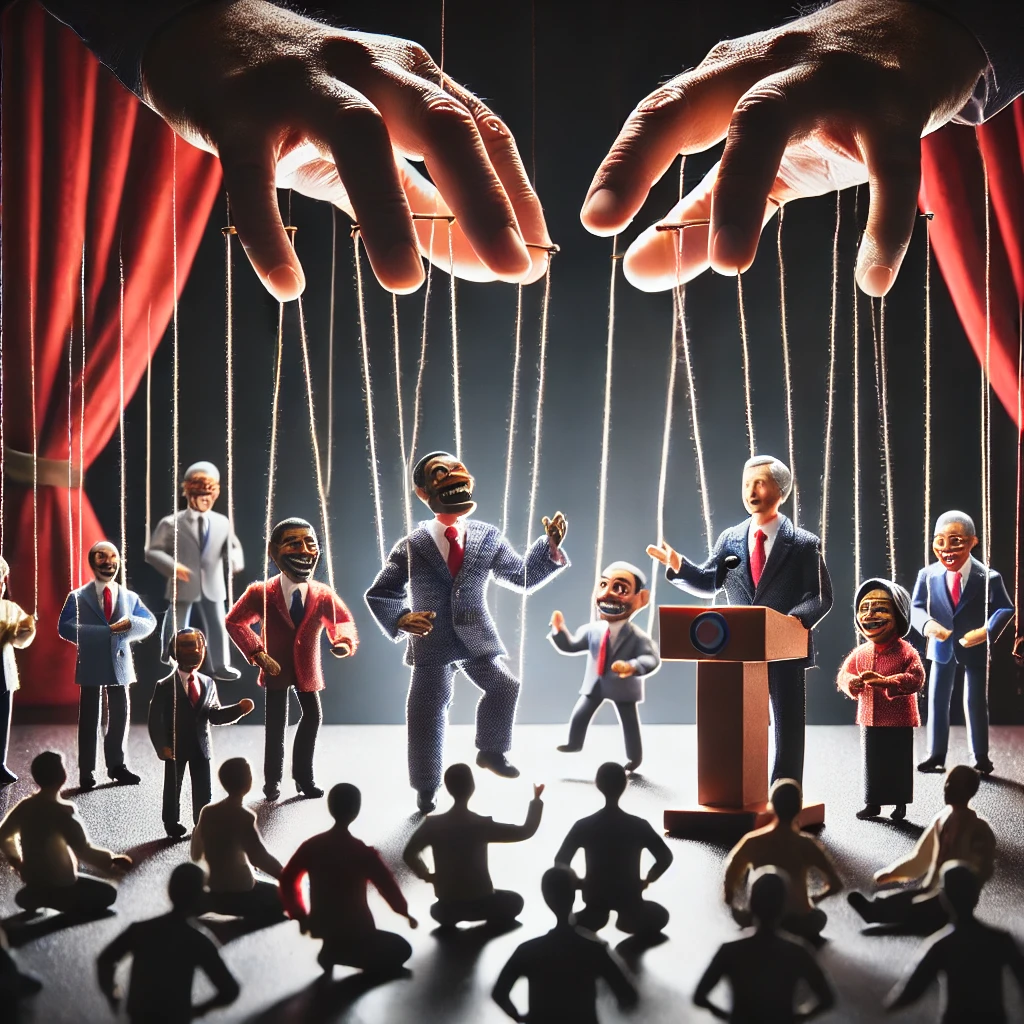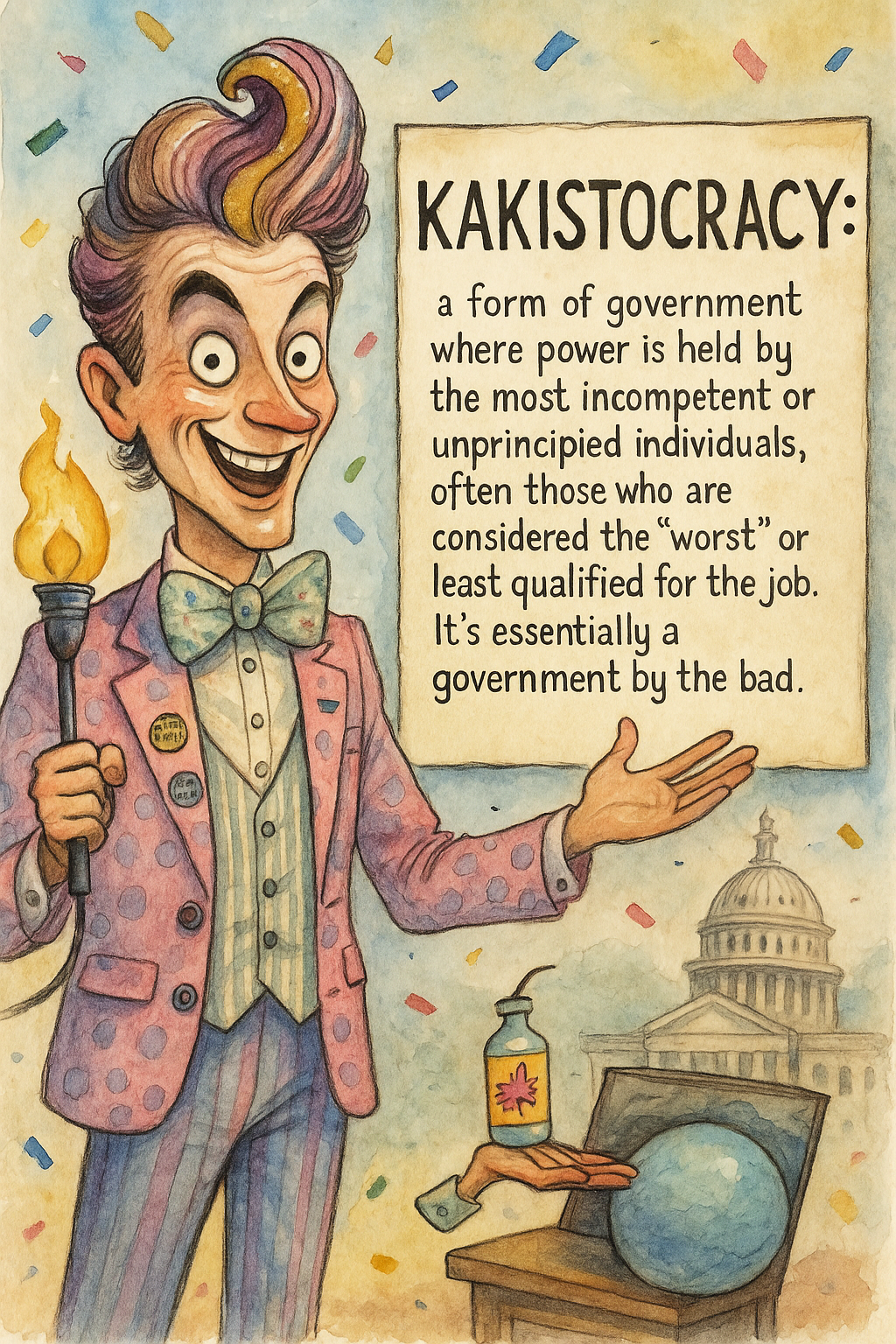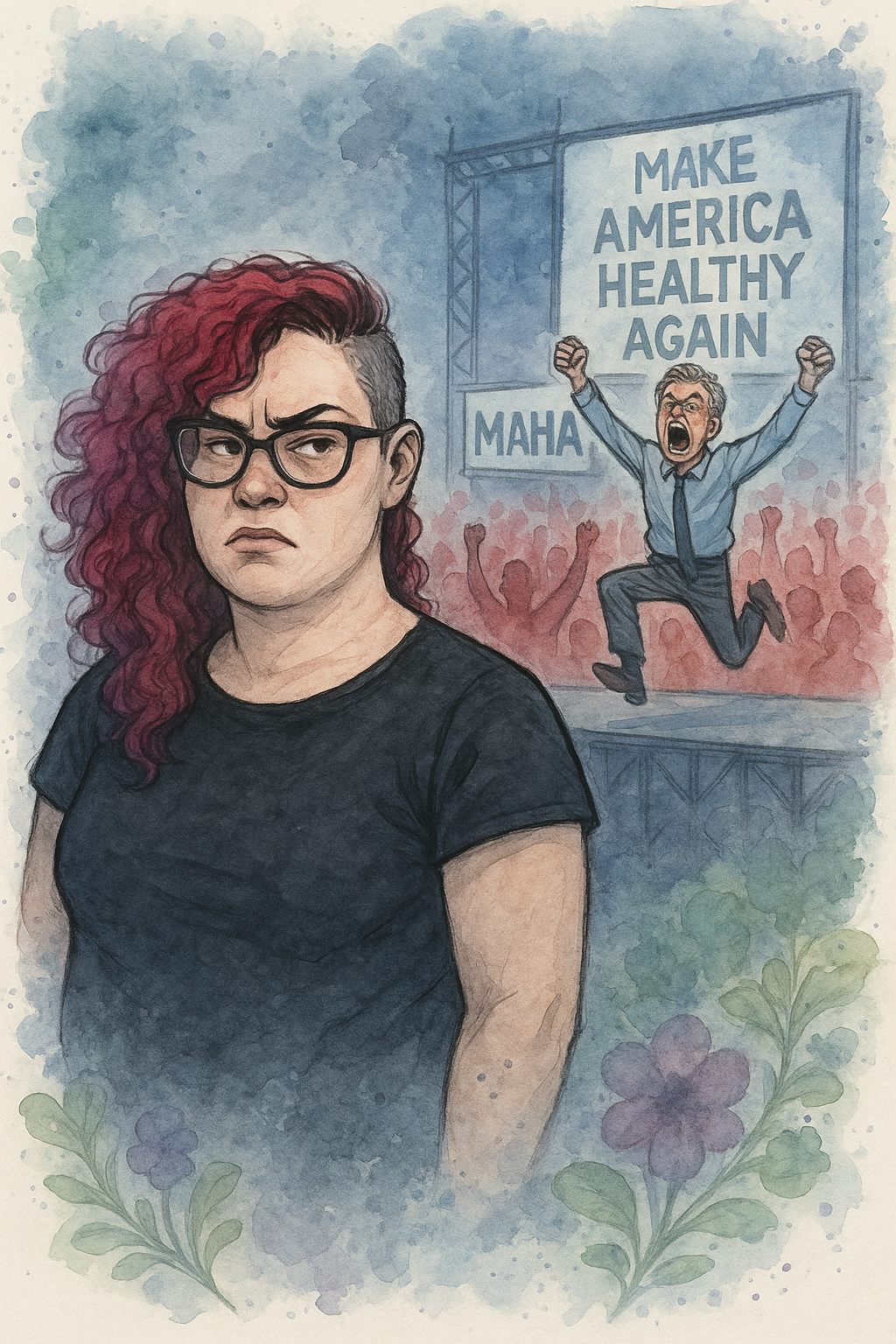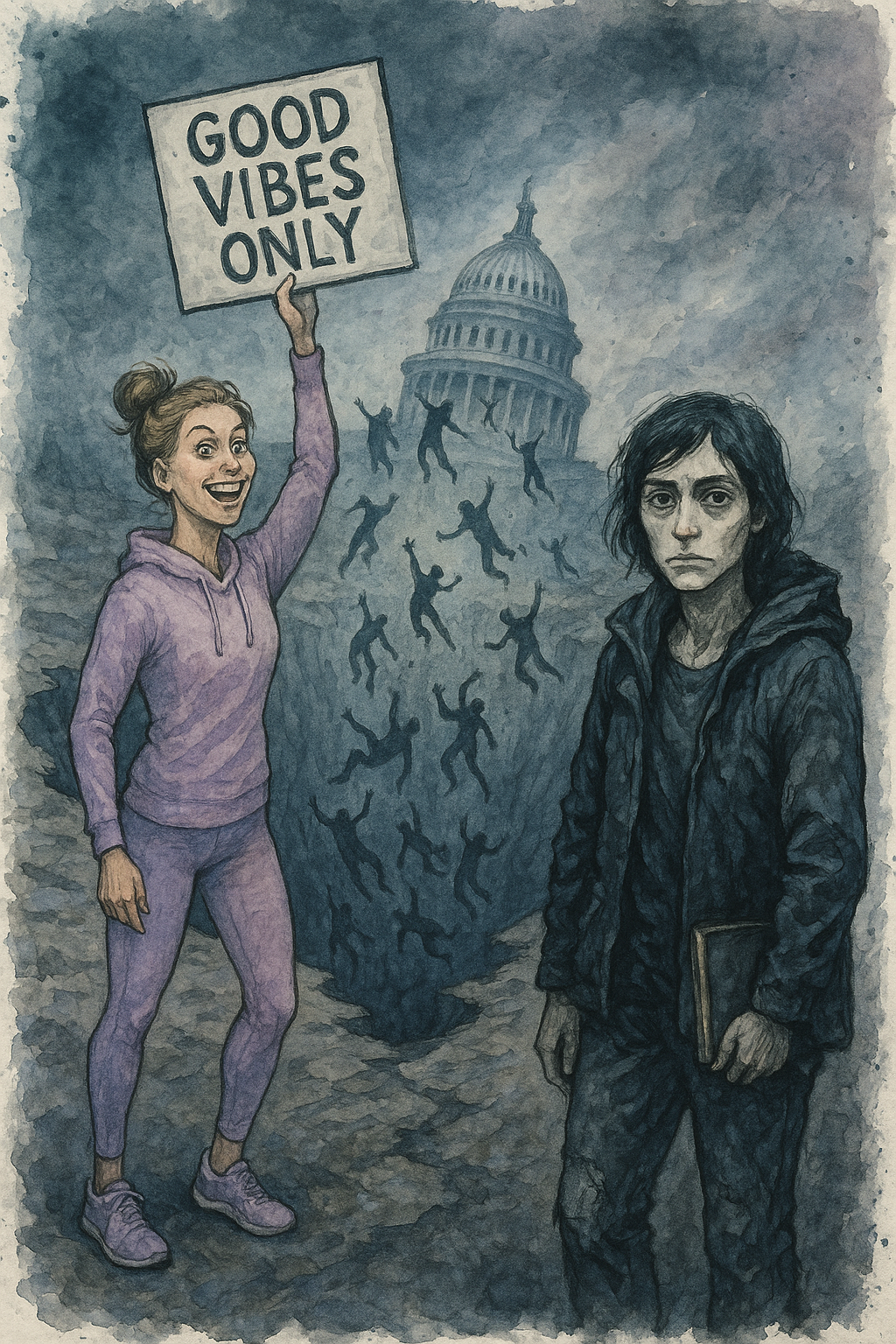When my patient told me he chose not to wear a pronoun button at work, he framed it as neutrality.
He just “wanted to stay out of it.” His coworkers were disappointed. His wife and kids were furious. He was bewildered.
“I’m not against trans people,” he insisted. “I just don’t want to make a statement.”
But that’s the thing: you already did.
In the world we live in, silence isn’t a blank slate. It’s a billboard. And more often than not, it advertises apathy dressed as restraint.
The Illusion of Neutrality
Neutrality, especially from those who benefit from privilege, isn’t a quiet corner. It’s a high perch from which to watch others drown—while insisting the water isn’t that deep.
Choosing not to speak, not to act, not to signal solidarity doesn’t mean you’re avoiding harm. It means you’re allowing it. And whether that’s your intention or not, the result is the same: you’re reinforcing a system that relies on your silence to function.
This isn’t about performance or politics. It’s about empathy. The radical idea that everyone deserves basic human dignity—and that when we withhold visible support, we’re saying, “That dignity isn’t worth the discomfort of my attention.”
The Source of Your News Matters
Later, the same patient brought up a Fox News segment about the LA protests. Again, he claimed he wasn’t “taking sides,” just “seeing all perspectives.”
But here’s the truth: not all perspectives are rooted in truth, and not all sources aim for understanding.
Fox News doesn’t inform—it performs. It doesn’t present reality—it manufactures fear. Referencing it as neutral is like saying you’re just taste-testing poison.
When you validate a narrative built on distortion, you’re not balancing the scales. You’re putting your weight on the side that’s already crushing people.
The Myth of the “Right Way” Immigrant
We see this again in some immigrant communities who say, “They should have done it the right way.” But that sentiment assumes a reality that doesn’t exist.
There is no clear “right way” for many people fleeing violence, poverty, or persecution. The legal pathways are labyrinthine, expensive, and deliberately inaccessible. That’s not a flaw—it’s the design.
And here’s the thing: due process doesn’t exist just for immigrants. It exists to protect all of us. It’s the thin line between justice and authoritarianism. When we suggest others don’t deserve it—because of how they arrived, or who they are—we’re tearing at our own safety net.
Silence in this context isn’t just unhelpful. It says, “I don’t believe they deserve the same rights I take for granted.” Or worse, “I believe I’m above needing someone to stand up for me.”
But here’s the truth: no one is above needing help. And if we don’t protect the rights of the most vulnerable, there may be no one left to protect ours when we become the target.
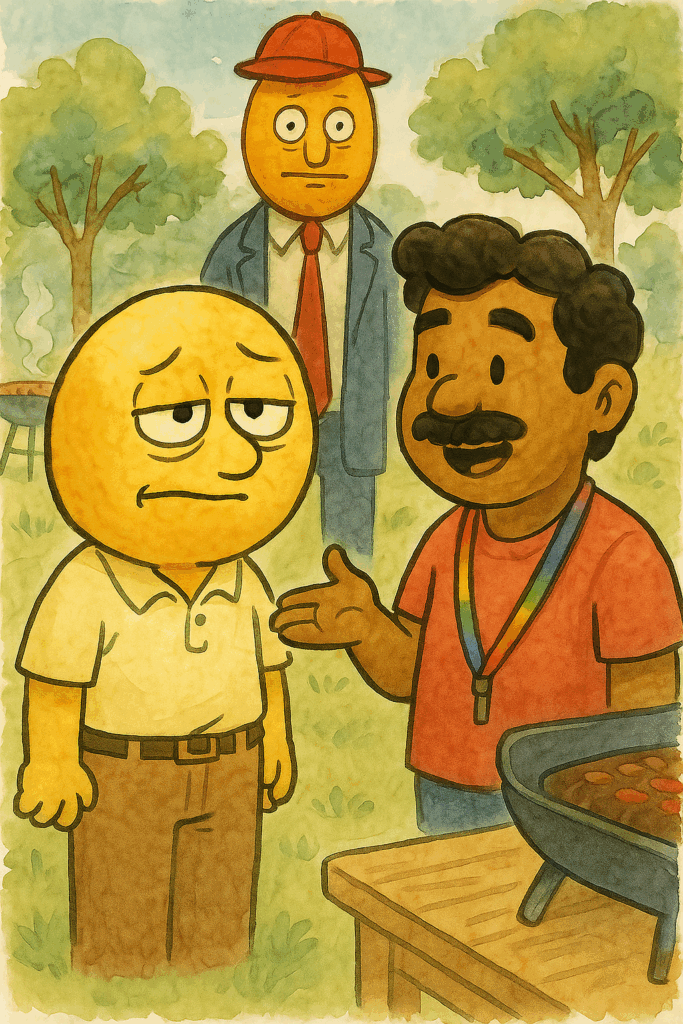
Why We Must Stand With the Marginalized in Palestine
The Israel-Palestine conflict is complex. The history is long, and the politics are fraught. But you don’t need a PhD in international relations to recognize suffering.
You don’t need to know every border agreement or ceasefire detail to say, “Children shouldn’t be bombed.”
You just need empathy.
Palestinian civilians—families, teachers, medics, children—are human beings. Not statistics. Not political abstractions. When political leaders dehumanize them—when Rep. Tim Walberg compares Gaza to Hiroshima and says it would be more humane to just “get it over with,” or when Sen. Tom Cotton implies protesters should be physically confronted—we are watching empathy being criminalized in real time.
Even more chilling, legislation like the “Unmask Hamas Act” proposes prison time for masked protesters. This isn’t about safety. It’s about control. It’s about fear. And it’s about silencing those who dare to grieve.
To stay silent in the face of that doesn’t mean you’re neutral. It means you’ve decided those lives don’t matter enough to warrant your voice.
Empathy Is Not Weakness
Let’s bury this lie once and for all: empathy isn’t soft. It’s not passive. It’s not naïve. It’s the fiercest form of resistance we have.
Empathy means refusing to normalize cruelty. It means standing up not only because others need it—but because we will too, eventually. Because systems that can target the vulnerable can—and will—turn on us.
Standing up for others isn’t charity. It’s survival. It’s what builds communities instead of cages. It’s what keeps the future from looking like the worst parts of our past.
Tenet 4, Silence, and the Moral Line
In The Cult of Brighter Days, we follow a philosophical code called The Five Tenets, a hierarchy of response to the world’s chaos:
- Be kind.
- If you can’t be kind, be nice.
- If you can’t be nice, be funny (without punching down).
- If you can’t be funny, shut up.
- If you can’t shut up, go away.
Tenet 4—“If you can’t be funny, shut up”—is sacred. It’s permission to pause, to refrain, to not escalate harm when your insides are chaos. It’s self-awareness with boundaries. It’s the wisdom to know when your voice would do more harm than good.
But let’s be clear: that is not the same as silence in the face of hate.
Tenet 4 is about restraint rooted in care. Choosing not to speak while others are actively causing harm—while people are being dehumanized, erased, attacked—that’s something else entirely.
That’s not compassion. That’s complicity.
You don’t have to argue with every bigot. But you do have to make sure they don’t get to assume you agree.
Because silence is fertile ground for propaganda. It’s what hatred grows in when no one yanks it out by the roots.
So if you’re staying silent, ask yourself: What am I actually saying with this silence?
Am I signaling that I don’t care? That I don’t believe others deserve rights? That I think I’m immune to injustice?
Because no one is.
The world doesn’t need more polite bystanders. It needs more inconvenient voices. More uncomfortable truths. More people who are willing to risk awkwardness, tension, and backlash to say:
“This matters. People matter. And I refuse to be quiet while they suffer.”
Because if we don’t stand up now, we may find ourselves praying someone else will someday. And if we taught them to stay silent too—then we’ve only echoed our own apathy into the void.
